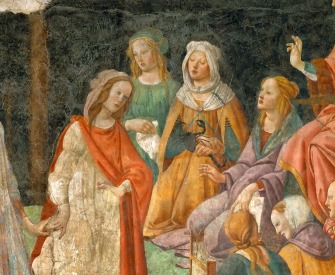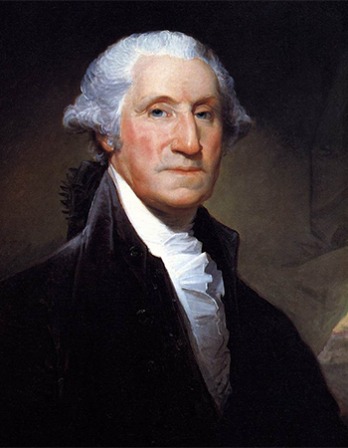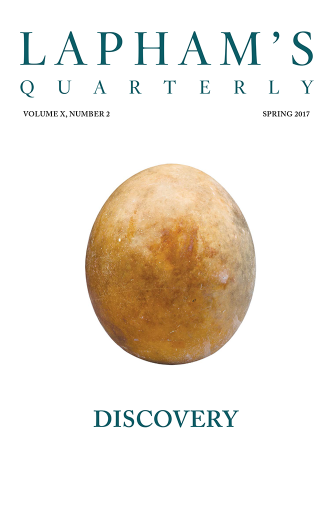Dear Sir,
In your fifth page, you say, “Mr. Adams calls our attention to hundreds of wise and virtuous patricians, mangled and bleeding victims of popular fury, and gravely counts up several victims of democratic rage as proofs that democracy is more pernicious than monarchy or aristocracy.”
Is this fair, sir? Do you deny any one of my facts? I do not say that democracy has been more pernicious on the whole, and in the long run, than monarchy or aristocracy. Democracy has never been and never can be so durable as aristocracy or monarchy. But while it lasts, it is more bloody than either. I beseech you, sir, to recollect the time when my three volumes of Defense were written and printed, in 1786, 1787, and 1788. The history of the universe had not then furnished me with a document I have since seen—an Alphabetical Dictionary of the Names and Qualities of Persons, “Mangled and Bleeding Victims of Democratic Rage and Popular Fury” in France During the Despotism of Democracy in That Country, which Napoleon ought to be immortalized for calling “ideology.” This work is in two printed volumes, in octavo, as large as Johnson’s Dictionary, and is in the library of our late virtuous and excellent vice president Elbridge Gerry, where I hope it will be preserved with anxious care. An edition of it ought to be printed in America; otherwise it will be forever supressed. France will never dare to look at it. The democrats themselves could not bear the sight of it; they prohibited it and suppressed it as far as they could. It contains an immense number of as great and good men as France every produced. We curse the Inquisition and the Jesuits, and yet the Inquisition and the Jesuits are restored. We curse religiously the memory of Mary for burning good men in Smithfield, when if England had then been democratical, she would have burned many more, and we murder many more by the guillotine in the latter years of the eighteenth century. We curse Guy Fawkes for thinking of blowing up Westminster Hall; yet Ross blows up the Capitol, the palace, and the library at Washington, and would have done it with the same sangfroid had Congress and the president’s family been within the walls. O! my soul! I am weary of these dismal contemplations! When will mankind listen to reason, to nature, or to revelation?
You say I “might have exhibited millions of plebeians sacrificed to the pride, folly, and ambition of monarchy and aristocracy.” This is very true. And I might have exhibited as many millions of plebeians sacrificed by the pride, folly, and ambition of their fellow plebeians and their own, in proportion to the extent and duration of their power. Remember, democracy never lasts long. It soon wastes, exhausts, and murders itself. There never was a democracy yet that did not commit suicide. It is in vain to say that democracy is less vain, less proud, less selfish, less ambitious, or less avaricious than aristocracy or monarchy. It is not true, in fact, and nowhere appears in history. Those passions are the same in all men, under all forms of simple government, and when unchecked, produce the same effects of fraud, violence, and cruelty. When clear prospects are opened before vanity, pride, avarice, or ambition, for their easy gratification, it is hard for the most considerate philosophers and the most conscientious moralists to resist the temptation. Individuals have conquered themselves. Nations and large bodies of men, never.
When Solon’s balance was destroyed by Aristides and the preponderance given to the multitude, for which he was rewarded with the title of “Just,” when he ought to have been punished with the ostracism, the Athenians grew more and more warlike in proportion as the commonwealth became more democratic. I need not enumerate to you the foolish wars into which the people forced their wisest men and ablest generals against their own judgments, by which the state was finally ruined, and Philip and Alexander became their masters.
In proportion as the balance, imperfect and unskillful as it was originally, here as in Athens, inclined more and more to the dominatio plebis [tyranny of the people], the Carthaginians became more and more restless, impatient, enterprising, ambitious, avaricious, and rash, till Hannibal swore eternal hostility to the Romans, and the Romans were compelled to pronounce delenda est Carthago [Carthage must be destroyed].
What can I say of the democracy of France? I dare not write what I think and what I know. Were Brissot, Condorcet, Danton, Robespierre, and Monseigneur Égalité less ambitious than Caesar, Alexander, or Napoleon? Were Dumouriez, Pichegru, Moreau less generals, less conquerors, or in the end less fortunate than he was? What was the ambition of this democracy? Nothing less than to propagate itself, its principles, its system, through the world, to decapitate all the kings, destroy all the nobles and priests in Europe? And who were the instruments employed by the mountebanks behind the scene to accomplish these sublime purposes? The firewomen, the badauds, the stage players, the atheists, the deists, the scribblers for any cause at three livres a day, the Jews, and oh! that I could erase from my memory the learned divines—profound students in the prophecies—real philosophers and sincere Christians, in amazing numbers, over all Europe and America, who were hurried away by the torrent of contagious enthusiasm. Democracy is chargeable with all the blood that has been spilled for five-and-twenty years.
Napoleon and all his generals were but creatures of democracy, as really as Rienzi, Theodore, Masaniello, Jack Cade, or Wat Tyler. This democratical hurricane, inundation, earthquake, pestilence, call it which you will, at last aroused and alarmed all the world and produced a combination unexampled to prevent its further progress.
A letter to John Taylor. Two years before serving as first U.S. vice president in 1789, Adams published his Defense of the Constitutions, a sprawling three-volume study of past governments that sought to reveal the essential elements of republicanism. Taylor, a U.S. senator from Virginia and close ally of Thomas Jefferson, devoted the opening of his 1814 Inquiry into the Principles and Policy of the Government of the United States to an extended critique of Adams’ work. The two began a correspondence that, despite their political differences, eventually developed into a lasting friendship.
Back to Issue






